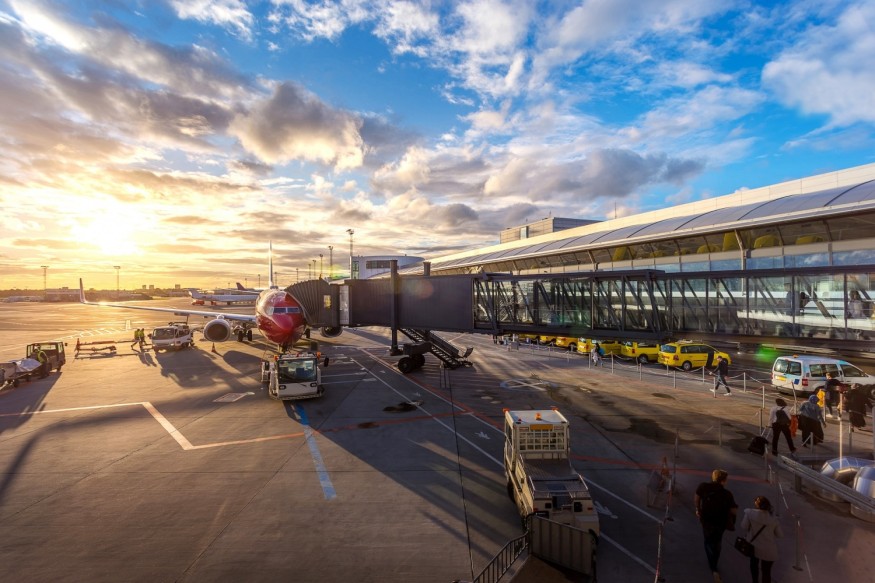
Air travel has become an integral part of our lives, connecting us to distant lands and cultures. However, the environmental impact of aviation has long been a concern. Thankfully, recent technological advancements have paved the way for a more convenient and eco-friendly flying experience. In this blog, we will explore the latest innovations that are transforming air travel, making it not only more convenient but also more sustainable.
Harness Solar Power for Airplanes
Solar power has been a game-changer in the quest for sustainable air travel. Aircraft manufacturers are increasingly incorporating solar panels into the design of planes, enabling them to generate renewable energy during flight. These panels are lightweight and flexible, seamlessly integrating into the structure of the aircraft. By harnessing the power of the sun, airlines can reduce their reliance on fossil fuels, resulting in lower carbon emissions and a greener sky.
Sustainable Travel Supplies Combine Convenience and Environmental Responsibility
In addition to technological advancements in aviation, sustainable travel supplies using consumer technology have emerged as an essential component in reducing our environmental impact while exploring the world. Products like sustainable headphones make it easier to travel than ever before, and they are eco-friendly. You'll find items like water bottles, solar battery chargers, biodegradable toiletries, reusable utensils, and more for your travel adventures.The convenience of having these items in flight combined with the sustainability aspect ensures that you do your part to help minimize your carbon footprint even when you travel.
Electric Propulsion
Electric propulsion has revolutionized ground transportation, and now it's taking to the skies. Electric aircraft are emerging as a viable alternative to traditional jet engines, promising reduced noise, emissions, and operational costs. Companies like MagniX and Eviation are spearheading the development of electric planes, with prototypes already making successful test flights. As technology continues to advance, we can expect to see electric planes becoming a common sight in our skies, fostering a more sustainable future for air travel.
Lightweight Materials Creates Efficiency in the Air
In the pursuit of fuel efficiency, aircraft manufacturers are embracing lightweight materials such as carbon fiber composites. These materials offer impressive strength-to-weight ratios, allowing planes to be built with lighter structures without compromising safety. By reducing the weight of aircraft, fuel consumption can be significantly reduced, resulting in fewer greenhouse gas emissions. Additionally, lightweight materials enable greater cargo capacity, enhancing the efficiency and convenience of air travel.
Sustainable Biofuels Makes Companies More Responsible
Biofuels derived from sustainable sources are emerging as a viable alternative to conventional jet fuel. Made from renewable feedstocks like algae, waste vegetable oils, or even used cooking oil, these biofuels can be blended with traditional jet fuel, reducing carbon emissions. Airlines such as KLM and United Airlines have already started using sustainable biofuels on select flights, showcasing the potential of these eco-friendly alternatives to power the future of aviation.
Energy-Efficient Airport Design
Airports are also playing a crucial role in making air travel more convenient and eco-friendlier. Innovative airport designs are incorporating energy-efficient features such as solar-powered terminals, LED lighting systems, and advanced climate control technologies. These initiatives not only reduce energy consumption but also create a more comfortable and sustainable environment for travelers.
Next-Generation Navigation Systems to Improve Air Traffic
Air traffic congestion is a significant challenge in the aviation industry, leading to delays and increased fuel consumption. However, with the development of next-generation navigation systems, such as Automatic Dependent Surveillance-Broadcast (ADS-B) and satellite-based communication, air traffic control can become more efficient and streamlined. These advanced systems enable more direct flight paths, reducing the distance traveled and optimizing fuel consumption, thereby making air travel more convenient while minimizing its environmental impact.
Smart Cabin Technologies That Increase Comfort
Advancements in smart cabin technologies are revolutionizing the flying experience, making it more comfortable and efficient. From interactive in-flight entertainment systems to adjustable seating configurations, these innovations cater to the evolving needs of passengers. Smart lighting systems that mimic natural daylight help regulate circadian rhythms and reduce jet lag. Moreover, advanced sensors and automation enable more precise monitoring and control of cabin temperature, humidity, and air quality, ensuring a pleasant and sustainable environment for travelers.
© 2025 NatureWorldNews.com All rights reserved. Do not reproduce without permission.





